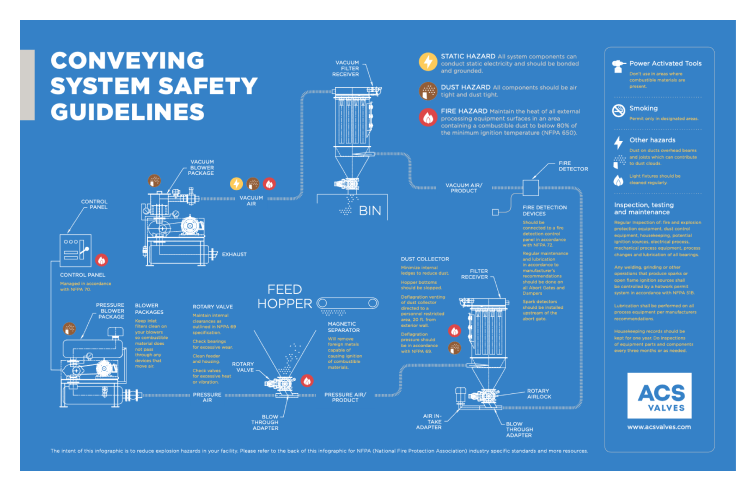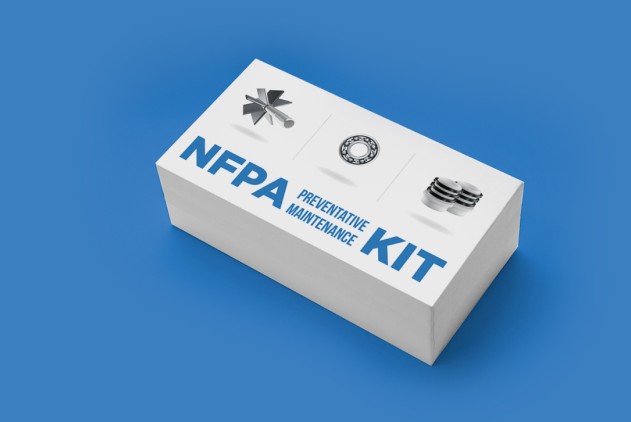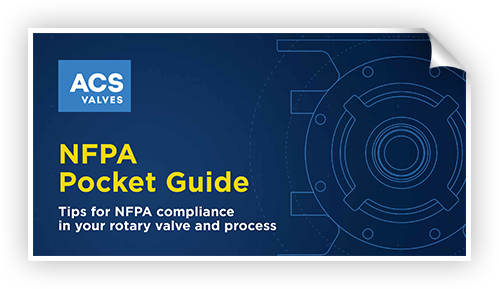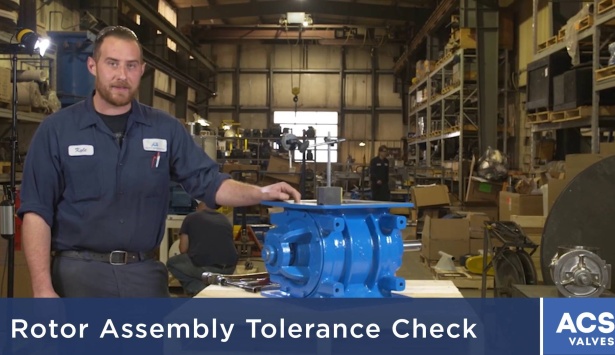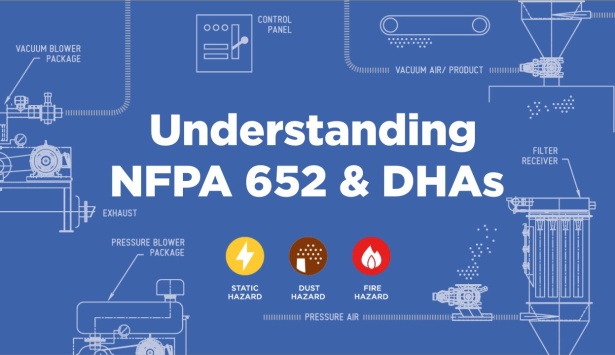Compliance 101: NFPA for rotary valves.
Browse our resource page to learn all about NFPA regulations, Dust Hazard Assessments (DHAs), and NFPA-compliant features for rotary airlock valves.
Not sure if your valve is compliant? Ask an ACS rep for help.
Let's talk NFPA for valvesDHAs: Don't forget!
Remember, your Dust Hazard Assessments (DHAs) are due every 5 years.
Test for combustibility
Not sure if your plant generates combustible dust? It’s your responsibility to find out. Contact a lab to get your materials tested.
Identify dust hazards
The DHA can be done by a qualified consultant or in-house team who knows the process. They will identify any fire, deflagration and explosion risks in the facility.
Get equipped for action
You must demonstrate an effort to correct the hazards identified by the DHA. That may mean changes in your plant layout, equipment or housekeeping procedures.
Read all about it

I missed the DHA deadline! What happens now?
The deadline for dust hazard analyses (DHAs) has passed, but you can still take steps to stay compliant with NFPA 652
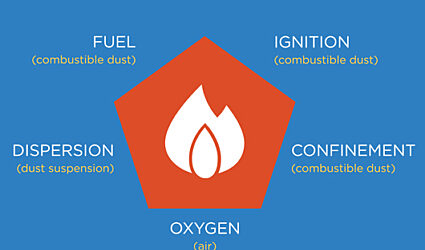
Everything you need to know about NFPA 652
The NFPA has a new standard for combustible dust across all commodity-specific manufacturing industries worldwide. Find out what the standard includes and how to make your plant compliant.

NFPA guidelines: Replacing your uncompliant parts
Stay safe and compliant with these rotary valve replacement tips
Test your knowledge
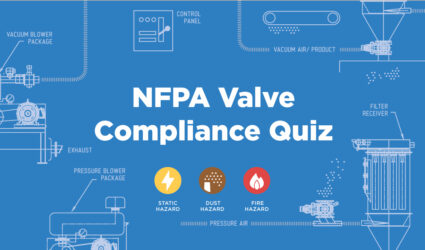
Pop Quiz: NFPA Valve Compliance
How well do you know the NFPA rules as they relate to rotary valves?

Pop Quiz: NFPA Valve Compliance, Part 2
Here’s another test of your NFPA rotary valve knowledge. Are you ready?

Quiz: What do you know about DHAs?
Industrial facilities need to conduct Dust Hazard Analyses (DHAs) by September 7, 2020. What do you know about the process?
See how it’s done
Conveying system safety tips for static, dust and fire hazards
GET THE GUIDELINESThis link opens the guidlines pdf in a new tab